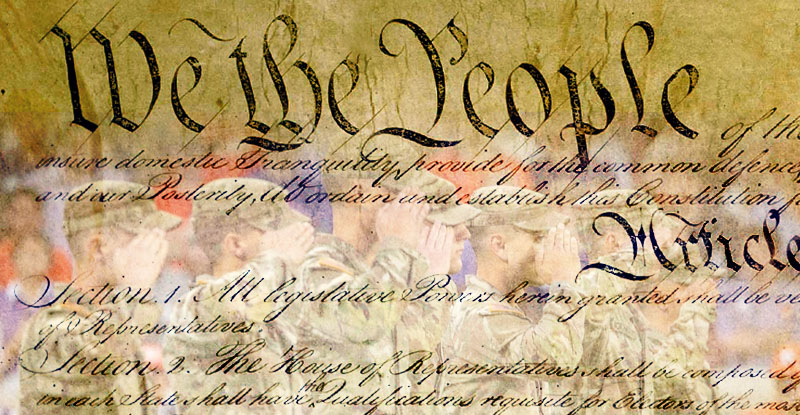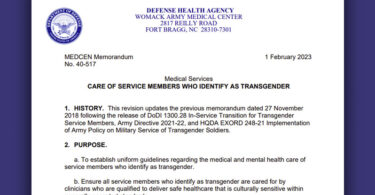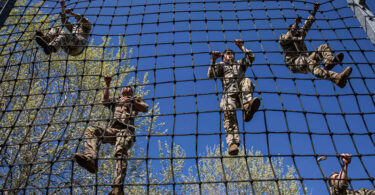Book review by USAF Colonel Paul Vicars
In Defending the Constitution Behind Enemy Lines, Commander Rob Green offers a detailed account of the battle by military service members to remain faithful to conscience and the Constitution during the DoD’s Covid vaccine mandate.
 This well-researched and accessible book covers various legal precedents for the mandate, the moral and legal responsibilities of service members, and the constitutional limits of Defense Department leaders.
This well-researched and accessible book covers various legal precedents for the mandate, the moral and legal responsibilities of service members, and the constitutional limits of Defense Department leaders.
It reviews the diverse experiences of those who resisted, their wins and losses along the way to repeal, and offers a hopeful call to remain faithful to conscience and the Constitution.
Green’s lucid portrayal of both his personal experiences and the tragedy and triumph of other defenders of conscience is essential reading for those interested in preserving the core constitutional principles that have grounded our nation since its birth.
He opens by describing the special role that officers have in judging the legality and morality of military orders, helpfully noting that a service member’s obligation to disobey an illegal or unconstitutional order is just as strong as the obligation to obey a lawful order.
This obligation to disobey explains the motives of the many who resisted the mandate.
Rob presents the vaccine holdouts as having the same sort of righteously rebellious spirit as the early-American “Sons of Liberty.”
Great men such as Samuel Adams, John Hancock, Patrick Henry, Paul Revere, and other Founding Fathers rightly resisted King George’s regal overreach through a loose network of American patriots.
They pledged their lives, fortunes, and sacred honor to one another to mutually resist the growing tyranny from across the Atlantic.
Similarly, Green equates the incremental oppression of the crown with our own government’s gradual aggregation of authority in the name of protecting American citizens from communicable diseases by impinging on their medical freedoms.
He shows how mis-rulings in both Jacobsen v. Massachusetts in 1905 and Buck v. Bell in 1927 gave an over-zealous medical bureaucracy the unconstitutional authority to limit free medical choice.
In addition to these precedents, the Department of Defense militarized the effort to defeat Covid-19, listing the disease as a priority even over the competition with near-peer adversaries.
Defeating Covid birthed Operation Warp Speed, which cut the Covid vaccine’s approval and testing time from about a decade to mere months and became the impetus for the subsequent DoD actions that gave rise to the book.
Moreover, this threat inflation was used to pressure men and women in the services to receive and compel reception of the Covid vaccine. Service members, especially early in the mandate, risked a dishonorable discharge if they did not take the vaccine.
Such an outcome would have given them the social standing of convicted felons, with the subsequent loss of Second Amendment rights and addition of “dishonorable discharge” to every future job application.
In light of such risks, it is remarkable that so many resisted. Green’s moving representation of this group contributes to the greatness of his book.
If there is an inclination to read the use of “behind enemy lines” in the title as hyperbole, the true stories and experiences of those brave men and women who risked so much to stand by their consciences and the Constitution suggests otherwise.
Green tells of a conscientious recruit who was encouraged to join by tales of religious accommodation, only to be denied and kicked out within months. Additionally, some service members were not permitted to enter their workplaces and were counted not present for duty even while working from their cars.
The harm, though, was not limited to those who took a conscientious stand against the mandate policy. Green tells of a Navy captain hospitalized with blood clots only four days after receiving the vaccine.
He also tells of those who experience great remorse for having succumbed to the pressure to take the shot. All who would have otherwise opted not to take it were harmed by the mandate.
For all of these service members, as well as those who resisted, the feeling of being “behind enemy lines” is no exaggeration. . . . (read the rest on America Conservative)








Leave a Comment